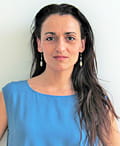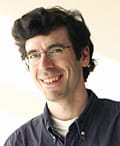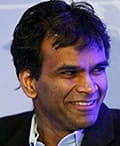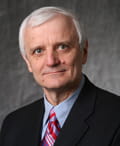Speakers
 Susan Athey
Susan Athey
Stanford University
Economics of Technology Professor, Stanford Graduate School of Business
Senior Fellow, Stanford Institute for Economics Policy Research
Susan Athey is the Economics of Technology Professor at Stanford Graduate School of Business. She previously taught at the economics departments at MIT, Stanford and Harvard.
Her current research focuses on the economics of the internet, marketplace design, auction theory, the statistical analysis of auction data, and the intersection of econometrics and machine learning. She has focused on several applications, including timber auctions, internet search, online advertising, the news media, and virtual currency. She advises governments and businesses on the design of auction-based marketplaces. She has served as a long-term consultant for Microsoft Corporation since 2007, including a period as chief economist. She also serves as a long-term advisor to the British Columbia Ministry of Forests, helping to architect and implement their auction-based pricing system.
At the age of 36, Professor Athey received the John Bates Clark Medal. The Clark Medal was awarded by the American Economic Association every other year to “that American economist under the age of forty who is adjudged to have made the most significant contribution to economic thought and knowledge.” She was elected to the National Academy of Sciences in 2012 and to the American Academy of Arts and Sciences in 2008. In 2000, she received the Elaine Bennett research award, given every other year to an outstanding young woman in any field of economics. She received continuous funding from the National Science Foundation from 1995 to 2008, including a prestigious Career Development award. In addition, she received the Sloan Foundation Research Fellowship for 2000-2002. She was elected as a fellow of the Econometric Society in 2004, and she is a Research Associate at the National Bureau of Economic Research. She was a National Fellow at the Hoover Institution in 2000-2001, and in 2004-2005 was a fellow at the Center for Advanced Studies in Behavioral Science at Stanford.
Her current research focuses on the economics of the internet, marketplace design, auction theory, the statistical analysis of auction data, and the intersection of econometrics and machine learning. She has focused on several applications, including timber auctions, internet search, online advertising, the news media, and virtual currency. She advises governments and businesses on the design of auction-based marketplaces. She has served as a long-term consultant for Microsoft Corporation since 2007, including a period as chief economist. She also serves as a long-term advisor to the British Columbia Ministry of Forests, helping to architect and implement their auction-based pricing system.
At the age of 36, Professor Athey received the John Bates Clark Medal. The Clark Medal was awarded by the American Economic Association every other year to “that American economist under the age of forty who is adjudged to have made the most significant contribution to economic thought and knowledge.” She was elected to the National Academy of Sciences in 2012 and to the American Academy of Arts and Sciences in 2008. In 2000, she received the Elaine Bennett research award, given every other year to an outstanding young woman in any field of economics. She received continuous funding from the National Science Foundation from 1995 to 2008, including a prestigious Career Development award. In addition, she received the Sloan Foundation Research Fellowship for 2000-2002. She was elected as a fellow of the Econometric Society in 2004, and she is a Research Associate at the National Bureau of Economic Research. She was a National Fellow at the Hoover Institution in 2000-2001, and in 2004-2005 was a fellow at the Center for Advanced Studies in Behavioral Science at Stanford.
 Eytan Bakshy
Eytan Bakshy
"Industry Panel on Computational Social Science"
Facebook Core Data Science Team
Senior Scientist
Eytan Bakshy is a senior scientist on the Core Data Science team at Facebook, where he leads the Experimental Design and Causal Inference group. His research interests include causal inference, large-scale field experimentation, peer effects in networks, and information diffusion. His recent work focuses on developing new methods for conducting and evaluating online experiments, including personalized adaptive experimentation. He is the author of PlanOut, an open-source framework for designing and deploying online experiments. Eytan holds a Ph.D. in Information from the University of Michigan and a B.S. in mathematics from the University of Illinois at Urbana-Champaign.
 Dirk Brockmann
Dirk Brockmann
Keynote "Experimental Epidemiology - Measuring What Matters in Disease Dynamics"
Humboldt University, Berlin
Professor at the Institute for Biology
Dirk Brockmann is a professor at the Institute for Biology at Humboldt University of Berlin and the Robert Koch Institute, Berlin. Brockmann is known for his work in complex systems, complex networks, computational epidemiology, human mobility and anomalous diffusion.
Brockmann studied physics and mathematics at Duke University and the University of Göttingen where he received his degree in theoretical physics in 1995 and his PhD in 2003. After postdoctoral positions at the Max Planck Institute for Dynamics and Self-Organization, Göttingen he became Associate Professor in the Department of Engineering Sciences and Applied Mathematics at Northwestern University in 2008. In 2013 he returned to Germany where he became Professor at the Institute for Biology at Humboldt University of Berlin. Brockmann worked on a variety of topics ranging from computational neuroscience, anomalous diffusion, Levy flights, human mobility, computational epidemiology, and complex networks.
Brockmann studied physics and mathematics at Duke University and the University of Göttingen where he received his degree in theoretical physics in 1995 and his PhD in 2003. After postdoctoral positions at the Max Planck Institute for Dynamics and Self-Organization, Göttingen he became Associate Professor in the Department of Engineering Sciences and Applied Mathematics at Northwestern University in 2008. In 2013 he returned to Germany where he became Professor at the Institute for Biology at Humboldt University of Berlin. Brockmann worked on a variety of topics ranging from computational neuroscience, anomalous diffusion, Levy flights, human mobility, computational epidemiology, and complex networks.
 Aaron Clauset
Aaron Clauset
"Editor’s Panel on Computational Social Science"
University of Colorado Boulder
Assistant Professor of Computer Science
External Faculty at the Santa Fe Institute
Science Advances
Associate Editor
Aaron Clauset is an Assistant Professor of Computer Science and Core Faculty in the BioFrontiers Institute at the University of Colorado, and is External Faculty at the Santa Fe Institute. Dr. Clauset is a computer scientist who both develops and applies advanced statistical methods for analyzing and modeling the structure and dynamics of complex systems, including social networks, competitive social systems, and violent political conflicts. He is an internationally recognized as an expert on network science, data science, and the statistics of rare events. He also serves as an Associate Editor at Science Advances and the Journal of Complex Networks.
 James A. Evans
James A. Evans
"Editor’s Panel on Computational Social Science"
University of Chicago
Associate Professor
American Journal of Sociology
Deputy Editor
James A. Evans is an Associate Professor at the University of Chicago. His research focuses on the collective system of thinking and knowing, ranging from the distribution of attention and intuition, the origin of ideas and shared habits of reasoning to processes of agreement (and dispute), accumulation of certainty (and doubt), and the texture—novelty, ambiguity, topology—of human understanding. Much of his work has focused on areas of modern science and technology, but he is also interested in other domains of knowledge—news, law, religion, gossip, hunches and historical modes of thinking and knowing. He supports the creation of novel observatories for human understanding and action through crowd sourcing, information extraction from text and images, and the use of distributed sensors (e.g., RFID tags, cell phones. His research is funded by the National Science Foundation, the National Institutes of Health, the Templeton Foundation and other sources, and has been published in Science, American Journal of Sociology, Social Studies of Science, Administrative Science Quarterly, PLoS Computational Biology and other journals. His work has been featured in Nature, the Economist, Atlantic Monthly, Wired, NPR, BBC, El País, CNN and many other outlets.
 David Ferrucci
David Ferrucci
Keynote "AI: Episode II - The Quest for Understanding "
Bridgewater Associates, Scientist
Creator of IBM’s Watson Cognitive Computing System
Ferrucci is a pioneer who established new frontiers in the study of unstructured text to levels that some thought impossible to achieve. A former IBM VP and Fellow, his team pioneered advances in natural language technologies and leveraged those technologies in a variety of computational, data analytic and knowledge management solutions. Under his leadership, the group developed Deep QA (“Watson”), the cognitive computing system that beat the best human Jeopardy! champions in 2011.
He holds a PhD in Computer Science from Rensselaer Polytechnic Institute and a BS in Biology from Manhattan College. Currently, a partner of the private hedge fund Bridgewater Associates, the largest hedge fund in the world, David works on applying natural language processing and artificial intelligence to develop socioeconomic theories.
David’s scholarship, leadership and success opened up a new field of research which moved beyond statistical correlations to integrating logic tools for improved understanding of human behavior. Not only does he continue to advance this research at Bridgewater today, but with IBM opening up Watson to developers via the cloud last year, a limitless number of computer scientists, sociologists and innovators will be able to trace their successes back to David, his team and his belief in forging a new trail. He has been named Innovator of the Year by R&D Magazine and Identified by Slate as among "The Most Innovative and Practical Thinkers of Our Time."
He holds a PhD in Computer Science from Rensselaer Polytechnic Institute and a BS in Biology from Manhattan College. Currently, a partner of the private hedge fund Bridgewater Associates, the largest hedge fund in the world, David works on applying natural language processing and artificial intelligence to develop socioeconomic theories.
David’s scholarship, leadership and success opened up a new field of research which moved beyond statistical correlations to integrating logic tools for improved understanding of human behavior. Not only does he continue to advance this research at Bridgewater today, but with IBM opening up Watson to developers via the cloud last year, a limitless number of computer scientists, sociologists and innovators will be able to trace their successes back to David, his team and his belief in forging a new trail. He has been named Innovator of the Year by R&D Magazine and Identified by Slate as among "The Most Innovative and Practical Thinkers of Our Time."
 Sandra González-Bailón
Sandra González-Bailón
Keynote "Online Networks and Large-Scale Coordination"
University of Pennsylvania
Assistant Professor at the Annenberg School for Communication
González-Bailón is an Assistant Professor at the Annenberg School for Communication, and affiliated faculty at the Warren Center for Network and Data Sciences. Prior to joining Penn, she was a Research Fellow at the Oxford Internet Institute (2008-2013), where she is now a Research Associate. She completed her doctoral degree in Nuffield College (University of Oxford) and her undergraduate studies at the University of Barcelona. Her research lies at the intersection of network science, data mining, computational tools, and political communication. At Annenberg, she leads the research group DiMeNet –acronym for Digital Media, Networks, and Political Communication.
 Shawndra Hill
Shawndra Hill
Keynote "Measuring the Impact of TV Content on Digital Behaviors"
Microsoft
Senior Researcher
Shawndra Hill is a Senior Researcher at Microsoft Research NYC and an Adjunct Associate Professor in the Operations and Information Management at the Wharton School of the University of Pennsylvania, where she is an Annenberg Public Policy Center Distinguished Research Fellow, a Wharton Customer Analytics Initiative Senior Fellow, and a core member of the Penn Social Media and Health Innovation Lab and the Warren Center for Network and Data Sciences. Generally, she studies data mining, machine learning and their alignment with business problems. Specifically, she researches the value to companies of mining data on how consumers interact with each other on social media -- for TV audience measurement, targeted marketing, advertising, health and fraud detection. Her current research focuses on the interactions between TV content and Social Media (www.thesocialtvlab.com). Her past and present industry partners include AT&T Labs Research, ClearForest, and Siemens Energy & Automation. Her research is funded in part by the Office of Naval Research, Google, and the National Institutes of Health (NIH). Dr. Hill holds a B.S. in Mathematics from Spelman College, a B.E.E. from the Georgia Institute of Technology and a Ph.D. in Information Systems from NYU's Stern School of Business.
 Barbara Jasny
Barbara Jasny
"Editor’s Panel on Computational Social Science"
Science/AAS
Deputy Editor, Emeritus
Barbara Jasny has served as the Deputy Editor for Commentary for Science, the weekly journal of the American Association for the Advancement of Science (AAAS). In this position, she coordinated the activities of editors responsible for the Perspectives, Letters, Book Reviews and Policy Forums. As Deputy Editor Emeritus, she solicits papers and evaluates research reports for publication in the social sciences, genetics, and medicine. She has taken the lead in special issues on the genome project, AIDS, molecular medicine, network analysis, and science & society for the past 30 years. Dr. Jasny has a BA with honors in Biology from New York University, and a PhD in Molecular Biology from Rockefeller University; she has conducted research in virus-host cell interactions, DNA replication, and cellular senescence. She is an elected fellow of the AAAS and has been an advisor to the American Society for Gene Therapy, the Functional Genomics Data Society and the National Academies Keck Futures Initiative. She is author of more than 60 research papers, editorials, and overviews, and has been involved in communicating science in books, articles, posters, virtual presentations, CDs, and podcasts.
 Michael Kearns
Michael Kearns
Keynote "Private Search in Social Networks"
University of Pennsylvania
Professor and National Center Chair in the Department of Computer and Information Science
Founding Director, Warren Center for Network and Data Sciences
Founding Director, Penn program in Networked and Social Systems Engineering
Since 2002 Kearns has been a professor in the Computer and Information Science Department at the University of Pennsylvania, where he holds the National Center Chair. He has secondary appointments in the department of Economics, and in the departments of Statistics and Operations, Information and Decisions (OID) in the Wharton School. He is the Founding Director of the Warren Center for Network and Data Sciences, where his Co-Director is Rakesh Vohra. He is the Founding Co-Director of Penn Engineering's Networked and Social Systems Engineering (NETS) Program, whose Director is Zack Ives. He is a faculty affiliate in Penn's Applied Math and Computational Science graduate program. Until July 2006 he was the co-director of Penn's interdisciplinary Institute for Research in Cognitive Science.
With Yuriy Nevmyvaka, he runs a quantitative trading team at Engineers Gate, a hedge fund based in New York City. He often serves as an advisor to technology companies and venture capital firms. He is also involved in the seed-stage fund Founder Collective and occasionally invests in early-stage technology startups. He is a member of the Technical Advisory Board of Microsoft Research Cambridge. He occasionally serves as an expert witness or consultant on technology-related legal and regulatory cases.
He is a Fellow of the American Academy of Arts and Sciences, the Association for Computing Machinery, the Association for the Advancement of Artificial Intelligence, and the Society for the Advancement of Economic Theory.
With Yuriy Nevmyvaka, he runs a quantitative trading team at Engineers Gate, a hedge fund based in New York City. He often serves as an advisor to technology companies and venture capital firms. He is also involved in the seed-stage fund Founder Collective and occasionally invests in early-stage technology startups. He is a member of the Technical Advisory Board of Microsoft Research Cambridge. He occasionally serves as an expert witness or consultant on technology-related legal and regulatory cases.
He is a Fellow of the American Academy of Arts and Sciences, the Association for Computing Machinery, the Association for the Advancement of Artificial Intelligence, and the Society for the Advancement of Economic Theory.
 Jon Kleinberg
Jon Kleinberg
Cornell University
Interim Dean of Computing and Info Science
Tisch University Professor in the Computer Science Department
Jon Kleinberg is the Tisch University Professor in the Computer Science Department at Cornell University. His research focuses on issues at the interface of networks and information, with an emphasis on the social and information networks that underpin the Web and other on-line media. He is a member of the National Academy of Sciences, the National Academy of Engineering, and the American Academy of Arts and Sciences, and serves on the Computer and Information Science and Engineering (CISE) Advisory Committee of the National Science Foundation, and the Computer Science and Telecommunications Board (CSTB) of the National Research Council. He is the recipient of MacArthur, Packard, and Sloan Foundation Fellowships, as well as awards including the Nevanlinna Prize, the Lanchester Prize, and the ACM-Infosys Foundation Award in the Computing Sciences.
 Stavroula Kousta
Stavroula Kousta
"Editor’s Panel on Computational Social Science"
Nature Human Behaviour
Chief Editor
Stavroula’s background spans the humanities, social sciences and biological sciences, and she feels strongly about the need for and value of interaction among disciplines. From 2008–2013 she was the Editor of Trends in Cognitive Sciences, during which time the journal evolved into one of the leading reviews outlets in the behavioural sciences. She then joined PLOS Biology, managing the journal’s magazine section and handling research manuscripts in neuroscience. Advocating for robust research practices, she also spearheaded the introduction of meta-research as a core discipline covered in the journal. Originally from Greece, Stavroula did a BA in English Studies at the University of Athens and obtained a PhD in English and Applied Linguistics (psycholinguistics) from the University of Cambridge. She then spent four years doing post-doctoral research on the psychological and neural underpinnings of language and semantic knowledge at University College London.
 David Lazer
David Lazer
Workshop: "Online Experiments with Volunteer Science"
Northeastern University
Distinguished Professor of Political Science and Computer and Information Sciences
Co-Director of NULab for Texts, Maps, and Networks
Professor Lazer is a professor of political science and computer and information science and the co-director of the NULab for Texts, Maps, and Networks. Before joining the Northeastern faculty in fall 2009, he was an associate professor of public policy at Harvard’s John F. Kennedy School of Government and director of its Program on Networked Governance. He holds a PhD in political science from the University of Michigan. Professor Lazer’s research centers on social networks; governance, or how the patterns of institutional relations yield functional or dysfunctional systems; and technology and its use in communication. An authority on social networks, he has written several papers on the diffusion of information among interest groups and between these groups and the government. He is the co-editor of Governance and Information Technology: From Electronic Government to Information Government and also written extensively on the use of DNA in the criminal justice system.
 Alessandro Lomi
Alessandro Lomi
Keynote: "Networks from events: Models and Cases"
University of Lugano
Co-founder and co-director of the InterDisciplinary Institute of Data Science at the Università della Svizzera italiana (USI-University of Lugano)
Professor in Organization Theory and Behavior in the Faculty of Economics and Director of Social Network Analysis Research Center
Alessandro Lomi is co-founder and co-director of the InterDisciplinary Institute of Data Science – IDIDS at the Università della Svizzera italiana (USI-University of Lugano) where he is a Professor in Organization Theory and Behavior in the Faculty of Economics and where he directs the SoNAR (Social Network Analysis Research) Center.
In recent years, he has been serving on the Swiss National Science Foundation’s Research Council in the Human and Social Sciences Division, and is currently Vice-Chairperson of the Interdisciplinary Research Commission. He is an elected Life Member of Clare Hall College, University of Cambridge, UK, and an Honorary Fellow in the School of Behavioral Science at the University of Melbourne, Australia. In 2011 he was awarded a Banco Santander Chair of Excellence Professorship at the Universidad Carlos III, Madrid, Spain. In 2008 he was Jemolo Research Fellow at Nuffield College, University of Oxford, UK. In 2002 he was NATO Senior Research Fellow at the Santa Fe Institute, US, where he previously held the position of Research Fellow in the program “Evolution of States and Markets.” In the less recent past he was a Full Professor in the Faculty of Economics of the University of Bologna, Italy, an Assistant Professor at the London Business School, UK, a Visiting Professor at the Haas School of Business, UC Berkeley, US. He holds a PhD from Cornell University, US.
In recent years, he has been serving on the Swiss National Science Foundation’s Research Council in the Human and Social Sciences Division, and is currently Vice-Chairperson of the Interdisciplinary Research Commission. He is an elected Life Member of Clare Hall College, University of Cambridge, UK, and an Honorary Fellow in the School of Behavioral Science at the University of Melbourne, Australia. In 2011 he was awarded a Banco Santander Chair of Excellence Professorship at the Universidad Carlos III, Madrid, Spain. In 2008 he was Jemolo Research Fellow at Nuffield College, University of Oxford, UK. In 2002 he was NATO Senior Research Fellow at the Santa Fe Institute, US, where he previously held the position of Research Fellow in the program “Evolution of States and Markets.” In the less recent past he was a Full Professor in the Faculty of Economics of the University of Bologna, Italy, an Assistant Professor at the London Business School, UK, a Visiting Professor at the Haas School of Business, UC Berkeley, US. He holds a PhD from Cornell University, US.
 Sendhil Mullainathan
Sendhil Mullainathan
Harvard University
Professor of Economics
Sendhil Mullainathan is a Professor of Economics at Harvard University. His real passion is behavioral economics. His work runs a wide gamut: the impact of poverty on mental bandwidth; whether CEO pay is excessive; using fictitious resumes to measure discrimination; showing that higher cigarette taxes makes smokers happier; modeling how competition affects media bias; and a model of coarse thinking. His latest research focuses on using machine learning and data mining techniques to better understand human behavior.
He enjoys writing, having recently co-authored Scarcity: Why Having too Little Means so Much and writes regularly for the New York Times.
He helped co-found a non-profit to apply behavioral science (ideas42), co-founded a center to promote the use of randomized control trials in development (the Abdul Latif Jameel Poverty Action Lab), serves on the board of the MacArthur Foundation, and has worked in government in various roles, including most recently as Assistant Director of Research at the Consumer Financial Protection Bureau.
He is a recipient of the MacArthur “genius” Award, has been designated a “Young Global Leader” by the World Economic Forum, labeled a “Top 100 Thinker” by Foreign Policy Magazine, and named to the “Smart List: 50 people who will change the world” by Wired Magazine (UK). His hobbies include basketball, board games, googling and fixing-up classic espresso machines.
He enjoys writing, having recently co-authored Scarcity: Why Having too Little Means so Much and writes regularly for the New York Times.
He helped co-found a non-profit to apply behavioral science (ideas42), co-founded a center to promote the use of randomized control trials in development (the Abdul Latif Jameel Poverty Action Lab), serves on the board of the MacArthur Foundation, and has worked in government in various roles, including most recently as Assistant Director of Research at the Consumer Financial Protection Bureau.
He is a recipient of the MacArthur “genius” Award, has been designated a “Young Global Leader” by the World Economic Forum, labeled a “Top 100 Thinker” by Foreign Policy Magazine, and named to the “Smart List: 50 people who will change the world” by Wired Magazine (UK). His hobbies include basketball, board games, googling and fixing-up classic espresso machines.
 Dao Nguyen
Dao Nguyen
"Industry Panel on Computational Social Science"
BuzzFeed
Publisher
Dao Nguyen is BuzzFeed’s Publisher overseeing the company’s technology, product, data and publishing platform. From 2001 to 2008, she worked at Le Monde Interactif, publisher of the leading news site lemonde.fr, where she served as its Chief Executive Officer starting in 2006. During her time as CEO, the site’s audience tripled, its revenue doubled, and it turned a healthy profit. While at Le Monde Interactif, she also launched Le Post.fr, a news and entertainment site. Before moving to France, she was Executive Producer at Concrete Media, a small web agency, and a consultant at Andersen Consulting (now Accenture). She has a degree in Applied Mathematics / Computer Science from Harvard.
 Matt Salganik
Matt Salganik
Keynote “Experiments in the Digital Age”
Princeton University, Cornell Tech
Professor in the Department of Sociology
Visiting Professor at Cornell Tech
Matthew Salganik is a Professor in the Department of Sociology at Princeton University. His interests include social networks, quantitative methods, and web-based social research. One main area of his research has focused on developing network-based statistical methods for studying populations most at risk for HIV/AIDS. A second main area of work has been using the World Wide Web to collect and analyze social data in innovative ways.
Salganik's research has been published in journals such as Science, Sociological Methodology, and Journal of the American Statistical Association. His papers have won the Outstanding Article Award from the Mathematical Sociology Section of the American Sociological Association and the Outstanding Statistical Application Award from the American Statistical Association. Popular accounts of his work have appeared in the New York Times, Wall Street Journal, Economist, and New Yorker. Salganik's research is currently funded by the National Science Foundation, National Institutes of Health, Joint United Nations Program for HIV/AIDS (UNAIDS), and Google.
Salganik's research has been published in journals such as Science, Sociological Methodology, and Journal of the American Statistical Association. His papers have won the Outstanding Article Award from the Mathematical Sociology Section of the American Sociological Association and the Outstanding Statistical Application Award from the American Statistical Association. Popular accounts of his work have appeared in the New York Times, Wall Street Journal, Economist, and New Yorker. Salganik's research is currently funded by the National Science Foundation, National Institutes of Health, Joint United Nations Program for HIV/AIDS (UNAIDS), and Google.
 Peter Sheridan Dodds
Peter Sheridan Dodds
Keynote "The Panometer: Building Lexical Meters to Gauge Emotional States, Health, Opinions and Stories"
University of Vermont
Professor in the Department of Mathematics and Statistics
Director of the Complex Systems Center
Visiting Faculty Fellow at the Vermont Advanced Computing Core
Dodds is a Scientist at the University of Vermont (UVM). Together with Chris Danforth, he co-runs the Computational Story Lab. His major current funding is an NSF CAREER award to study sociotechnical phenomena (2009-2014).
In his research and teaching, he focuses on system-level, big data problems of all kinds, often networked, sociotechnical ones. He has a hybrid educational and training background of theoretical physics, mathematics, electrical engineering, and the social sciences. His publications have appeared in many realms including sociology, psychology, language, biology, ecology, and Earth systems, and his work has received global press coverage. He has general interests in stories/narratives, complexification, contagion, and robustness, and a long term goal to uncover what he calls the Theory of Anything.
He is a Full Professor in the Department of Mathematics and Statistics which is part of the College of Engineering and Mathematical Sciences at UVM. He is the Director of the Complex Systems Center at UVM (CSC), and he is a visiting faculty fellow at the Vermont Advanced Computing Core (VACC).
In his research and teaching, he focuses on system-level, big data problems of all kinds, often networked, sociotechnical ones. He has a hybrid educational and training background of theoretical physics, mathematics, electrical engineering, and the social sciences. His publications have appeared in many realms including sociology, psychology, language, biology, ecology, and Earth systems, and his work has received global press coverage. He has general interests in stories/narratives, complexification, contagion, and robustness, and a long term goal to uncover what he calls the Theory of Anything.
He is a Full Professor in the Department of Mathematics and Statistics which is part of the College of Engineering and Mathematical Sciences at UVM. He is the Director of the Complex Systems Center at UVM (CSC), and he is a visiting faculty fellow at the Vermont Advanced Computing Core (VACC).
 Markus Strohmaier
Markus Strohmaier
EPJ Data Science Keynote ""Measuring Social Phenomena on the Web"
University of Koblenz-Landau, Germany
GESIS - Leibniz Institute for the Social Sciences, Cologne, Germany
Full Professor, Web-Science, Dept. of Computer Science
Scientific Director, Computational Social Science
Markus Strohmaier is a Full Professor of Web-Science at the Faculty of Computer Science at University of Koblenz-Landau (Germany), Scientific Director of the Computational Social Science department at GESIS - the Leibniz Institute for the Social Sciences (Germany), and a Distinguished Visiting Scholar at Stanford University's Media-X program (since 2010). He has been a visiting scientist/professor at Stanford University (USA) during the 2011/12 academic year, at XEROX Parc (2009, 2010-2011) and at RWTH Aachen (2009).
Markus Strohmaier received his PhD from the Faculty of Computer Science at Graz University of Technology in 2004. From 2006-2007, he was a Postdoctoral Fellow at the Dept. of Computer Science at University of Toronto working with Prof. Eric Yu on agent-oriented and social modeling. In 2012, he completed his habilitation at Graz University of Technology. His main research interests include Web-Science, Social and Semantic Computing, Social Software Engineering, Networks and Data Mining. To date, he has been awarded substantial research funding (either as PI, Co-PI or key scientist) from national and European funding agencies. He teaches computer science courses both on an undergraduate and graduate level and has taught classes with more than 200 students.
Markus Strohmaier received his PhD from the Faculty of Computer Science at Graz University of Technology in 2004. From 2006-2007, he was a Postdoctoral Fellow at the Dept. of Computer Science at University of Toronto working with Prof. Eric Yu on agent-oriented and social modeling. In 2012, he completed his habilitation at Graz University of Technology. His main research interests include Web-Science, Social and Semantic Computing, Social Software Engineering, Networks and Data Mining. To date, he has been awarded substantial research funding (either as PI, Co-PI or key scientist) from national and European funding agencies. He teaches computer science courses both on an undergraduate and graduate level and has taught classes with more than 200 students.
 Boleslaw Szymański
Boleslaw Szymański
"Editor’s Panel on Computational Social Science"
Rensselaer Polytechnic Institute
Claire and Roland Schmitt Distinguished Professor of Computer Science
IEEE Transactions on Computational Social Systems
Deputy Editor
Boleslaw Szymański is the Claire and Roland Schmitt Distinguished Professor of Computer Science and Professor of Cognitive Science at RPI, the Director of the ARL Social/Cognitive Network Academic Research Center as well as an IEEE fellow active in new IEEE Transactions devoted to network science. He's known for multiple contributions into computer science, including Szymański’s algorithm.
Dr. Szymański is also the Principal Investigator in the International Technology Alliance. His projects include dynamic processes on networks, hidden groups in social networks, sensor network protocols and algorithms, and large-scale parallel and distributed computing and simulation. He received ITA Distinguished Service Award in 2007. Dr. Szymański is also one of the Principals in the MilkyWay@home project that seeks to model the streams of stars in the Milky Way Galaxy that were pulled from nearby galaxies (e.g. Saggitarius).
Dr. Szymański is also the Principal Investigator in the International Technology Alliance. His projects include dynamic processes on networks, hidden groups in social networks, sensor network protocols and algorithms, and large-scale parallel and distributed computing and simulation. He received ITA Distinguished Service Award in 2007. Dr. Szymański is also one of the Principals in the MilkyWay@home project that seeks to model the streams of stars in the Milky Way Galaxy that were pulled from nearby galaxies (e.g. Saggitarius).
 Balazs Vedres
Balazs Vedres
Keynote "Fold Networks and Success with Innovation"
Central European University
Director of the Center for Network Science
Associate Professor in the Department of Sociology and Social Anthropology
Vedres is a network scientist, director of the Center for Network Science and associate professor at the Department of Sociology and Social Anthropology at Central European University. Vedres' research furthers the agenda of understanding historical dynamics in network systems, combining insights from historical sociology, social network analysis, and studies of complex systems in physics and biology. His contribution is to combine historical sensitivities to patterns of processes in time with a network analytic sensitivity to patterns of connectedness cross-sectionally. Over the last decade Balazs Vedres developed data collection and analysis techniques to handle large historical datasets. His research results were published in the top journals of sociology, his most recent publication in the American Journal of Sociology analyzes generative tensions in the historical evolution of business groups.
 Hanna Wallach
Hanna Wallach
"Industry Panel on Computational Social Science"
Microsoft Research
Senior Researcher
Adjunct Associate Professor
College of Computer & Information Sciences, UMass Amherst
Hanna Wallach is a researcher at Microsoft Research in New York City and an Adjunct Associate Professor in the College of Computer & Information Sciences at UMass Amherst, where she is one of five core faculty members involved in UMass’s recently formed Computational Social Science Initiative. Wallach develops new machine learning methods for analyzing the structure, content and dynamics of complex social processes, such as the U.S. political system, the U.S. patent system, and software development communities. Her research contributes to machine learning, Bayesian statistics, and — in collaboration with social scientists — to the nascent field of computational social science. Her work on infinite belief networks won the best paper award at AISTATS 2010. Wallach co-founded the annual Women in Machine Learning Workshop. Wallach holds a BA in Computer Science from the University of Cambridge, an MS in Cognitive Science and Machine Learning from the University of Edinburgh, and a PhD in Physics from the University of Cambridge.